Mr. Safi, who represented Kashmir at the United Nations in 1994, made the remarks during a meeting with an Iranian media delegation in Islamabad on December 16.
Syed Yousuf Naseem, Mir Tahir Masood, Mehmood Ahmed Saghar, Abdul Majid Mir, and Shaukat Hussain Bhat, who are also members of the All Parties Hurriyat Conference, also attended the meeting.
Following are excerpts of their remarks:
Ghulam Muhammad Safi said, “We not only appreciate the stand and stance of Iran on Kashmir, but we also pray for Iran because Iran is also being overwhelmed by America. But President Ahmadinejad, we consider him to be the hero of the Muslim ummah at present because of his steadfastness, his stand against America, and he is living in our hearts because he seems to be following the footsteps of Imam Khomeini and the footsteps of Ayatollah Khamenei because (speaking in Arabic) ‘Therefore, whoever disbelieves in the Shaitan and believes in Allah, he indeed has laid hold on the firmest handle, which shall not break off, and Allah is Hearing, Knowing’ (the Holy Quran, part of verse 256 of Surah II, Baqarah [The Cow]). So, all these are arrogant. America is the most arrogant, the Great Satan, and this Great Satan has wreaked havoc with our issue of Kashmir, also because it has been the policy of America that the people of Jammu and Kashmir should not be given their right to self-determination.
“So, we, all of us, we know what Iran is. You must know that Kashmir is known as Iran Saghir (Little Iran). You are Iran Kabir (Greater Iran), and we are Little Iran. And Allameh Muhammad Iqbal, he had said: ‘If Tehran became the Geneva of the world, I’m sure the fate of the entire world would change.’ Geneva is now the center of all the activities of the United Nations Human Rights Council and all that, but Allameh Iqbal had said that this position should have been given to Iran. Iran deserves this position, and had Iran gotten that position, there would have been a totally different scenario in the whole world.
“Well, we know the Iranian leadership, right from Imam Khomeini to the present time, how wise was your counsel regarding the right of self-determination of the Kashmiri people, and we thank you and your entire nation and your leadership for that.
“We also remember that once, when P.V. Narasimha Rao was the prime minister of India, he wanted to visit Iran, and during those days, the Indian army was playing havoc with the Kashmiri Muslims. So custodial claims were going on, rape was going on, and people were being killed. Extrajudicial killings were being perpetrated on the people of Jammu and Kashmir, and at that time, the Iranian leadership categorically told the prime minister of India: ‘Sorry, we cannot allow a person of your standing into our country because your hands are soaked with the blood of Kashmiri Muslims.’
“So, Iran has been speaking on behalf of the Muslim ummah. It has not (been the case) that Iran speaks only about Iran and the Iranian nation, but regarding the latest hajj delegation or the pilgrims who were going to perform hajj… Ayatollah Khamenei addressed those pilgrims, those hujjaj, and even (in) that address, he talked about Kashmir. He told the pilgrims to offer prayers and make dua (supplicatory prayers) for the Kashmiri Muslims and for their liberation. So we thank you and your nation for all that.
“But what we want to convey at present is that the situation in Kashmir at present is worsening. It is going from bad to worse because of the presence of Indian occupation troops, more than 700,000 army and paramilitary forces, which are stationed there, inside Indian-occupied Jammu and Kashmir. And with those army men, they have a protection or a shield, the Armed Forces Special Powers Act.
“This is a draconian law enacted in Indian-occupied Jammu and Kashmir, the Armed Forces Special Powers Act. Because of that act, they can kill anybody, and they are not accountable to anyone. No one can even ask them: ‘Why did you kill this person?’ They can blast any house on the pretext that ‘We felt that some miscreants were there.’ So on these flimsy grounds, they have killed more than one lakh people, more than 100,000 Kashmiri Muslims, young and old, men and women and children. And there have been the mass graves, those were discovered, and we must give credit to the human rights organizations of India, though India is our enemy because India is occupying our territory. But it would be unjust if we do not give credit to those persons from civil society, especially the NGOs from India, who unearthed all this. They discovered those mass graves in various parts of the territory of Jammu and Kashmir.
“So we would like you to be ambassadors of our cause as journalists, as media persons. We don’t want anything which is not true. We want you to speak out the truth which is there… I once again thank you very much.”
When asked how he sees the prospects for the future and if there is some chance of even a small breakthrough for the referendum on the final status of Kashmir to be held, he said, “As Muslims, we always have to be optimistic. (Speaking in Arabic) Do not despair of the mercy of Allah (the Holy Quran, part of verse 53 of Surah XXXIX, Zumar [The Companions]). We feel that the occupation will finally come to an end, but what we see at present is that there is a total determination on the part of the masses in Kashmir, though 64 long years have passed, but there has not been any dent made by the Indian occupation on the patience of the people, on the determination of the people.
“People are very much determined to take the ongoing movement to its logical conclusion, number one. Secondly, the movement of the right of self-determination has now been passed to the next generation. From 1947 till date, one generation collapsed, the other generation left, the third generation left. Now this is the fourth generation, but they have the same flag in their hands.
“India is an occupying power in Kashmir. India has no legitimacy in Kashmir. So people want the right to self-determination. This is the writing on the wall, and this is what the Indian military leaders have seen, felt, and they told their leaders in Delhi that Kashmir is a political issue, it cannot be dealt with militarily.
“They tried to deal with this problem militarily, but they could not succeed. So they are of the opinion that India should come forward with certain packages for the people of Jammu and Kashmir, certain CBMs (confidence-building measures) for the people of Jammu and Kashmir. We have all these people who are affiliated with various organizations, Sunni as well as Shia organizations. We have got Mr. Mir Tahir Masood. He represents the Shia community of Kashmir, and he also speaks about the right of self-determination. It’s not an issue of Shia-Sunni in Kashmir. We are all one in demanding the right of self-determination for the people of Jammu and Kashmir. This is the voice of Mr. Abbas Ansari. This is the voice of Shabir Ahmad Shah. This is the voice of Syed Ali (Shah) Geelani. There is no discrimination whatsoever.
“India tried its utmost to make certain dents within Sunnis and Shias, but they failed. They completely and utterly failed in making a Shia-Sunni conflict in Kashmir, Alhamdulillah (praise be to Allah). And credit must be given to the Shia leadership and the Sunni leadership and the Hurriyat leadership, who sat in one room and said: ‘We are all united on one point, the right of self-determination for the people of Jammu and Kashmir, nothing short of that, nothing more.’
“So there have been India-Pakistan talks, bilateral talks. And those who think that these India-Pakistan talks can bring something about… we are not optimistic about that. We feel that the issue is basically a tripartite issue. It is linked with India, Pakistan, and the people of Jammu and Kashmir.
“So far as the two countries of India and Pakistan talk about the issue of Kashmir, they will reach nowhere. They will have to involve the real parties, like the All Parties Hurriyat Conference.
“The issue cannot be resolved by bilateral talks between India and Pakistan. It has to be trilateral. It has to be India, Pakistan, and the Kashmiri leadership. So, secondly, we also feel that the confidence-building measures, CBMs, cannot be a substitute for conflict resolution. Conflict resolution is something different, and confidence building, it is totally different. And these confidence-building measures, we have seen that there is something wrong in Mumbai, in Gujarat, or in Pakistan. So the blame game is on, and all that confidence building goes down the drain.
“So, we feel the basic and the core issue is Kashmir. As long as Kashmir remains unresolved, there’ll be no peace between India and Pakistan, there will be no peace in the South Asian region, and there will always be the dark clouds of war hovering above in the skies of the entire world. So we feel that India, Pakistan, and the international community will have to address the basic issue that is the issue of Kashmir. So you can talk for hours regarding trade, you can talk for hours regarding visas, you can talk for hours regarding other things, but that will not make a difference.”
Asked why Kashmiri leaders do not apply to the United Nations Security Council for UN membership of the State of Jammu and Kashmir, like Acting Palestinian Authority President Mahmoud Abbas did, Safi said, “It’s a good idea. I think we should (think) about it. But the problem with it at present is that you have the United Nations Security Council resolutions regarding Kashmir, which talk about a referendum in the entire State of Jammu and Kashmir. When we talk about Kashmir, we consider this part of Kashmir administered by Pakistan, Azad Kashmir. It’s not a part of Pakistan. That part of Kashmir occupied by India is not a part of India. So the entire territory of Jammu and Kashmir, be it Ladakh, Jammu, Kashmir, Muzaffarabad, Azad Kashmir, and the Northern Areas, it is all disputed… So it is all disputed.”
He went on to say that according to the United Nations Security Council resolutions, the people have decided that the status of the entire state should be determined through a referendum conducted by the United Nations itself.
“We in fact want the implementation of the partly implemented resolutions because the resolutions of the Security Council have been partly implemented… So that’s why we are not asking for full membership in the United Nations as yet. Maybe if in the OIC (Organization of Islamic Cooperation) or in Pakistan, Iran, Turkey, Kashmir, if we sit together and you suggest and all of us decide on it, maybe the strategy might be changed, but until now, we have just been asking for the implementation of partly implemented resolutions.”
Elsewhere in his remarks, he said, “Without sacrifices, you can never ever achieve your goal. This is the lesson that we have learned, we Kashmiris have learned, from Karbala, and every night we have mourning ceremonies and every day we have the day of Karbala… for 64 years. It’s a Karbala. We call it the Karbala of Kashmir.”
Safi stated that the people of Kashmir would keep on struggling until Kashmir is liberated, saying, “It will continue. My father started it, I am here, my son will continue after my death… until victory.”
Syed Yousuf Naseem said, “We are the activists, or we are the freedom fighters of Indian-occupied Kashmir. Our struggle is based on” the resolutions that the United Nations passed on August 13, 1948 and January 5, 1949.
Based on the 1949 resolution, India agreed that the Jammu and Kashmir dispute should be settled according to the wishes of the people of Kashmir and that a referendum should be held, he added.
Naseem noted that the total area of Kashmir is 36,000 square kilometers, it has a population of about 15 million, and more than one million Kashmiri people live in Pakistan and Iran.
And about half a million Kashmiris live in the United Kingdom, he said, adding that all these Kashmiris are seeking their right to self-determination.
This right to self-determination is recognized by the international community, Naseem stated.
And the Kashmir issue is a political issue, he said.
“We will struggle until victory. Our cause is a just cause.”
On the relationship between Iran and Kashmir, Naseem said, “We have very deep relations with the Iranian nation.”
“We were inspired by the Iranian revolution,” he added.
Naseem also asked Iranian journalists and media people to report the realities on the ground and state “for what purpose we are struggling.”
“Every Iranian Muslim should know what is happening in Jammu and Kashmir,” he added.
Naseem said that there are now many people, especially intellectuals and journalists, like Arundhati Roy, who are on the Kashmiris’ side.
“The international community is also rigid on this point that without resolving the Kashmir issue, there will be no peace in this region,” he noted.
However, he expressed regret over the fact that a number of senior leaders of the Hurriyat Conference have been killed by Indian forces.
He stated that another positive point is the fact that China refuses to issue Kashmiris visas on Indian passports, but instead stamps a visa on a piece of paper for Kashmiris with Indian passports.
“We have given half a million people” and have made many sacrifices, which will not go in vain, Naseem said, adding that this is an issue of Muslims, but the international community is not supporting the Kashmiris.
“Inshallah (God willing), a time will come (when) we’ll achieve our goal,” he said.
Shaukat Hussain Bhat said that during five months of resistance against the occupation forces, from June 11, 2011 to November 5, 2011, 127 children, aged from six to 15 years old, were killed.
“Our issue is a totally political issue,” he said, adding that Iranian media people should report about the human rights violations being committed in Jammu and Kashmir.
He went on to say that the leaders of Jammu and Kashmir face certain restrictions.
“Our leadership cannot move outside Kashmir,” and they face some restrictions in regard to participating in Friday prayers, he explained.
The people of Kashmir also do not have the right to freedom of assembly, he said.
Mir Tahir Masood said that Kashmiri officials have made every effort to resolve the dispute through diplomatic channels.
Many delegations from Muslim countries, the United States, and Europe come to Kashmir and say: ‘Why do you not try to resolve the issue through political and diplomatic channels,’ he said, adding, “We tell them: ‘Yes, since 1947, we have been doing this, and now we also are doing the same. The only thing is the attitude of India. We can’t see any change in their attitude… They’re repeatedly saying that Kashmir is an integral part of India.’”
The United States and European countries are saying that Kashmir must show flexibility, but Kashmir has shown much flexibility for decades, he noted.
“But there is no flexibility on the Indian side. Pakistan shows, Kashmiris show much flexibility,” he said.
In addition, he stated that the leaders of Kashmir have emphasized that they will only hold talks on the core issue, which is Kashmir.
He added, “We will try to” find a diplomatic solution to the issue “as long as we can.”
He also stated that Kashmir needs Iran’s support because Iran has good relations with India.
On the difference between the Kashmir issue and the Palestinian issue, he said that two parties, the Palestinians and the occupiers, are involved in the Palestinian issue, while three parties are engaged in the Kashmir issue, namely the principal party, Kashmir, Pakistan, and India as the occupier.
“We have suggested that” the three parties sit down and reach an agreement that is accepted by the three sides, he said, adding, “But India is not showing flexibility.”
He went on to say that the people of East Timor were given the right to freedom in 1999 with the support of the United States and Europe because 80 percent of the people were Christians and not Muslims.
The same thing happened in South Sudan, where a referendum was held in 2011 with the support of the United States and certain other countries, he added.
“The problem is that we are Muslims,” he said.
He also stated that according to a census conducted by India, 70 percent of the people of Kashmir are Muslims, but “if we count, we are more than that.”
EP/HG
END
MNA


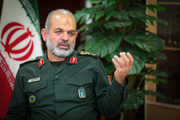
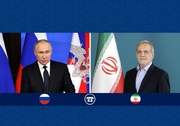
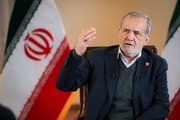

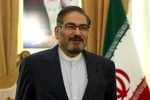
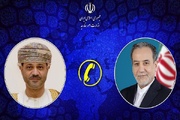
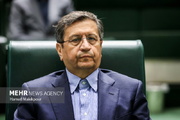
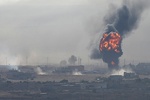
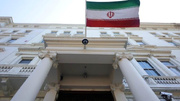
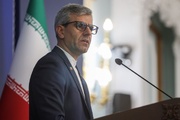
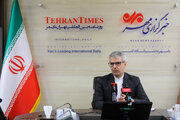




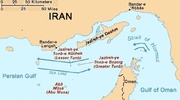



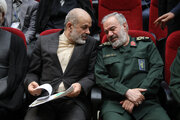
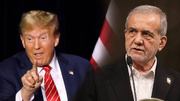


Your Comment